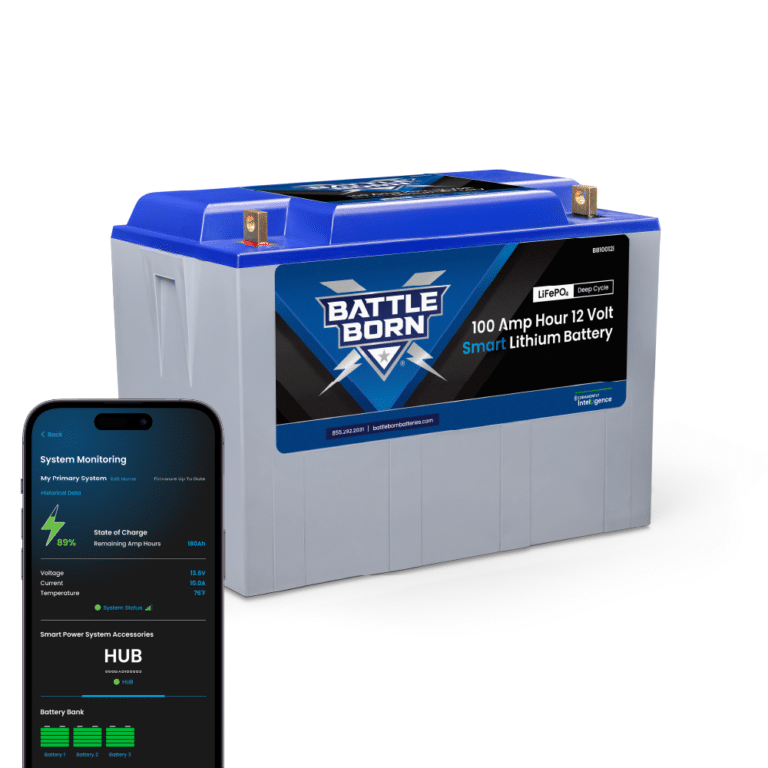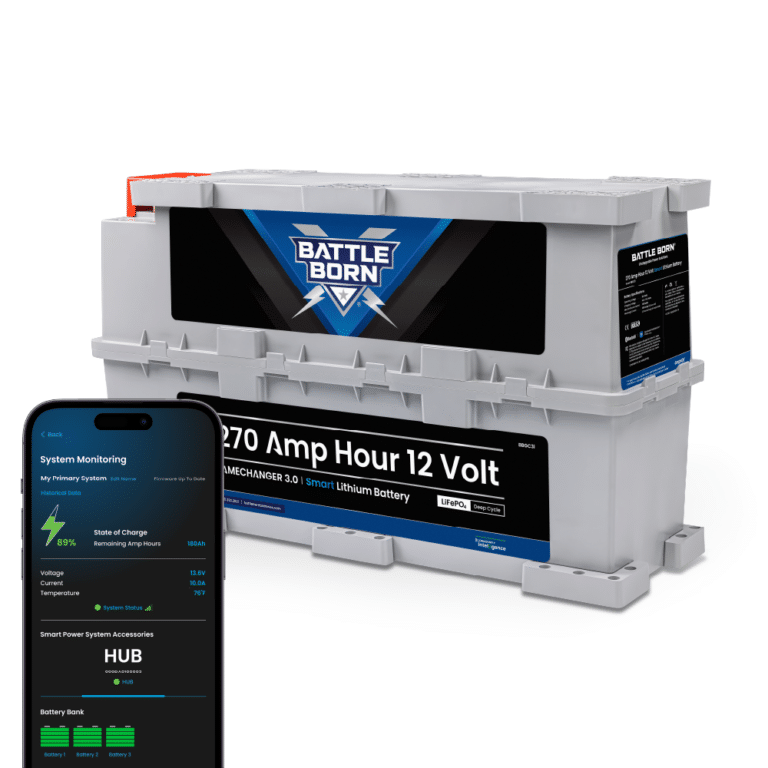
MENUMENU
TALK TO AN EXPERT
Special Hours: 7AM – 6PM PST
TALK TO AN EXPERT
Special Hours: 7AM – 6PM PST
Heavy-duty trucks are critical to the global economy. But while they only account for 10% of vehicles on the road, they’re responsible for more than 25% of toxic emissions produced by the transportation sector—an industry that already generates an outsized share of greenhouse gas (GHG) emissions. These include methane, CO2, and nitrous oxide—three of the most common heat-trapping gasses currently choking our planet.
Luckily, there is hope on the horizon. The push toward electric vehicles (EVs) in the logistics industry is poised to significantly lower GHG emissions from heavy-duty trucks. Sustainable batteries are the way of the future, but the buck doesn’t stop at trucks on the road.
Idling trucks consume thousands of gallons of diesel fuel per year. That’s thousands of gallons burned without moving an inch! However, thanks to batteries, electrified trucks can provide idle-free solutions for long-haul truckers. If companies, owners, and operators act now, they can spin the wheels of change even faster.
Let’s unpack key information that heavy-duty truck drivers and fleet owners need to know about the future of electrifying the trucking industry. Key questions we’ll address include:

According to a study out of Northwestern University, if the lower Great Lakes region—the largest freight hub in North America—shifted 30% of its heavy-duty trucks to electric, it could cut pollution substantially while saving hundreds of lives per year.
The study's authors found that heavy-duty trucks and other large vehicles were the prime contributor to on-road nitrogen oxides and the second-biggest source of CO2. Finding ways to reduce these emissions isn’t just better for the environment, it also benefits our health and boosts the economy.
Researchers further noted that reducing nitrogen dioxide and other particulate matter could generate $5.7 billion and $600 million in savings, respectively. Moreover, damage avoided by lowering CO2 emissions could save up to $456 million every year. A physically healthy economy is a financially healthy one too.
The latest battery technology brings long-haul drivers and fleet owners reliable, efficient, and environmentally friendly solutions round the clock. Specifically, breakthroughs in lithium-ion tech allow for longer trips with less environmental impact than conventional lead-acid batteries and internal combustion engines.
Long-haul trucks don’t only generate emissions while on the road. They’ll spend eight to ten hours idling during rest periods, especially cabs that provide sleeping quarters. Their Auxiliary Power Unit (APU) needs to keep running in order to power their HVAC, appliances, and other electronics.
State-of-the-art lithium-ion battery systems provide ample power, even while the truck isn’t running. That helps save money on fuel, as well as improving driver comfort. After all, imagine trying to rest and relax next to an idling long-haul truck! Furthermore, li-ion systems—like the All Electric APU from Battle Born Batteries—produce zero emissions, thus helping to lower your carbon footprint.
Pivoting to sustainable batteries can rack up significant savings on fuel and maintenance. Moreover, heavy-duty trucks become more profitable when they don’t have to stop and fill up on expensive (and polluting) diesel fuel. By scheduling charges between trips, logistics companies can ensure fleets always run on a full battery.
In addition to being costly and detrimental to the environment, failure to adopt cleaner energy solutions may soon be illegal. The Environmental Protection Agency (EPA) has stringent regulations in place to lower GHG emissions over the next several years. Investing in sustainable batteries today will likely save you headaches in the future.
In April 2023, the EPA announced plans to revise its existing standards to lower GHG emissions for heavy-duty trucks and other vehicles. Here’s what you need to know about what the EPA calls “Phase 3 Greenhouse Gas.”
New EPA standards will apply to heavy-duty vocational vehicles, including delivery trucks, refuse haulers, shuttles, school buses, and public utility trucks. They’re proposing stronger CO2 standards that go beyond current benchmarks set by the Phase 2 Greenhouse Gas program.
Phase 3 standards intend reducing GHG emissions from heavy-duty trucks by 29% less than 2021 levels by 2032. For comparison, Phase 2 only aimed to reduce GHG emissions by 17% below 2010 levels over a 10-year period.
That said, Phase 3’s stricter standards will be phased in over a longer period than the Phase 2 rollout. Furthermore, they’ll apply between model years 2028 and 2032, so truckers and logistics leaders have time to upgrade their rigs and fleets.
Technology is the name of the game in Phase 3. With an abundance of battery tech and breakthroughs in EVs, trucks owners have no excuse not to embrace change. Phase 3 is leaning heavily into battery-operated and hybrid vehicles, while Phase 2 concentrated on the use of advanced diesel engines.
But the news isn’t all positive. Phase 3 standards are expected to be quite costly. The EPA estimates that new regulations will cost the heavy-duty industry about $1,700 per vehicle. Despite the expense of this initial outlay, the EPA believes the industry will save $1.5 billion on fuel costs over the life of such vehicles.

Advancements in battery technology, such as Battle Born Battery’s All-Electric APU, are helping reduce emissions and cultivate a cleaner environment. The All-Electric APU is lightweight, durable, and was designed to last hours on a single charge. Furthermore, because it leverages dual DC to DC Converters (which use your truck’s alternator to charge the battery), it’s always charged after a long day of driving.
Every year, it’s estimated that idling trucks emit 11 million tons of CO2, 55,000 tons of Nitrogen Oxides, and 400 tons of particulate matter. If we can eliminate some of those emissions with electric APUs, we’ll have made significant progress toward a greener future.
But idling is just the tip of the iceberg. Let’s unpack some other key reasons why using sustainable batteries in heavy-duty trucks benefits the environment:
With the EPA preparing to crack down on the heavy-duty trucking industry, now is the time to upgrade your fleet to be more environmentally friendly. Sustainable batteries are the key to meeting your environmental goals while complying with new regulations.
Thankfully, companies like Battle Born Batteries are ready to guide you through this transition. Our extensive catalog of lithium-ion batteries will help you pivot into the electronic future. Get in touch with Battle Born Batteries today to learn more about the power of lithium-ion.
Shop Best Sellers








Ask a technical specialist now at 855.292.2831
Stay in the Know